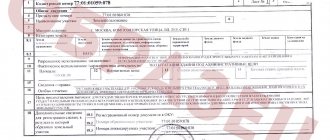Definition of "self-capture"
Civil and legal entities can own land, and ownership can be either temporary or permanent, and occur free of charge or for a fee.
The law provides several legal rights to own land:
- Rental of territories;
- Purchase of territory under a sales contract;
- Acquisition of land by inheritance;
- Purchase of territory from the authorities or municipality at auction;
There are also other grounds that give the right to own land. They are described in the Land Code of the Russian Federation and the Civil Code of the Russian Federation.
Each listed legal basis for land ownership, even though it is a temporary owner of the territory or a permanent one, gives him the right to protect his rights from unwanted and illegal actions of third parties. And protection from unauthorized seizure of territory is also included in this right.
As the Land Code and Civil Code of the Russian Federation states, unauthorized seizure of land occurs in the following situations:
- The owner of the territory acts against the law. This may be an illegal expansion of the territory of a land plot (examples are the transfer of fences to adjacent territory without legal grounds);
- Construction of a building, part of which overlooks someone else’s land plot or deliberate construction on its territory;
- Placing personal property on the territory of someone else’s land plot without the consent of its owner;
- Conducting activities on the territory of someone else’s land plot, without having the appropriate documents giving the right to do so;
- Conducting commercial activities on land without a previously issued document giving the right to engage in business;
IMPORTANT !!! The legal rights holders of territories where unauthorized seizure has been detected have the right to put forward demands to violators to eliminate legal violations. If the request is not granted, then the legal owners of the land have every right to use the protection of their personal rights.
Fine for unauthorized seizure of a land plot registered in the cadastral register
Individuals who do not conduct commercial activities are obliged to pay a fine in an amount equal to 1 - 1.5% of the cadastral valuation of real estate.
However, the minimum fine, in accordance with Article 7.1 of the Code of the Russian Federation on Administrative Offenses, is 5,000 rubles.
When seizing someone else's land by an official, such person is obliged to pay a fine in the amount of 1.5 - 2% of the land valuation according to the cadastre, but its amount must be no less than 20,000 rubles. Organizations that have committed such a violation are obliged to pay an amount of 2–3% of the cadastral valuation of real estate, but not less than 100,000 rubles.
How to protect yourself from self-seizure of territories
The legal owner of a land plot has the exclusive right to protect and restore his legal rights that have been violated. This also applies to the unauthorized seizure of its territory.
There are several protection options that can be carried out if the owner wishes:
- Independent protection of your rights. For example, the owner of a site has every right to remove illegally installed fences by another person from his site.
- Appeal to the violator in writing, demanding to stop illegal actions on the territory of the copyright holder.
- Appeal to the State Land Supervision Service with a written complaint, which puts forward a requirement to visit the land plot with an inspection and establish the legality of the actions taken. If illegal actions are detected, the violator is brought to administrative responsibility.
- Applying to the court with a corresponding claim, in which the owner of the land demands that the violator be held accountable for his illegal actions.
The listed methods of protection against violation of personal rights apply to both civilians and legal entities, as well as public organizations. In order to be able to make a claim, you must have in hand documents establishing the right to own the territory.
IMPORTANT !!! It is worth knowing that there are no ownerless lands on the territory of the Russian Federation, and even if there are no buildings on the territory, this does not mean that they can be seized without permission. Any land plot in Russia belongs to the state and illegal use of land is punishable by law.
But how do you know that the rights of the land owner have been violated? First of all, you need to know the data set out in the boundary plan. As a rule, this is what documents from 2013 determine the exact boundaries of the land. If the owner of the land received it before 2013, and he does not have a boundary plan, then to determine his boundaries he will have to involve a cadastral engineer, who will draw up the necessary document.
It is the boundary plan that can reveal the seizure of someone else’s territory, since when it is drawn up, not only the boundaries are determined, but also the fact of agreement between the owners of adjacent territories.
Unauthorized seizure of land occurs if there is no written or oral consent of the owner of the land, giving the right to another person to dispose of his land or install buildings on it.
ATTENTION !!! In the event that neighbors have agreed among themselves on the use of their adjacent plots, then liability for land seizure may not arise even in court. For example, if a neighbor, by verbal agreement with another neighbor, used his garden for 10 years, then when a court case is initiated, he will be obliged to simply stop using someone else’s land, but he will not suffer any responsibility or punishment for this.
What responsibilities are provided?
The seizure of someone else's territory, according to current legislation, entails the following:
- Receiving a written or oral demand to vacate the land plot of another owner;
- Receiving a claim in which a demand is made to compensate for losses from lost profits of the owner while his land was in exploitation by the violator;
- Receiving a subpoena. During legal proceedings, the violator must forcibly vacate the land, and funds will be collected from him to eliminate the violations he has committed. For example, money may be charged to demolish an illegally built fence.
In order for the court to consider a case of unauthorized seizure of territory, it is necessary to confirm your legal right to the land plot. In the event that the plaintiff cannot provide the court with title documents for the land, since he does not have them (this can happen if the land was received according to the rules still in force in the USSR, and the archives on the distribution of land were not preserved), then he it will be necessary to write a statement requesting recognition of his rights to the property.
IMPORTANT !!! After the court establishes the legal rights to own the land, the plaintiff must contact Rosreestr to register his property in accordance with all the necessary rules.
After the owner of the land with existing title documents for the land comes to court to protect his rights from unauthorized seizure of the territory by another person, the violator will be called to administrative and civil liability.
The Code of Administrative Offenses of the Russian Federation, namely its Article 7.1, establishes the rules according to which the violator will be brought to administrative responsibility. Moreover, not only those who knowingly carried out an unauthorized seizure of someone else’s territory are subject to sanctions, but also those who did it unknowingly. For example, a land tenant who does not renew the lease agreement with the owner on time may also be subject to sanctions.
Commentary on Article 7.1 of the Code of Administrative Offenses of the Russian Federation
1. The object of the offense is social relations in the sphere of land use and property protection. Subject - land plots, which, according to Art. 130 of the Civil Code of the Russian Federation relate to real estate (real estate). In turn, Art. 261 of the Civil Code of the Russian Federation contains the characteristics of a land plot as an object of ownership. According to paragraph 2 of Art. 6 of the Land Code of the Russian Federation, a land plot is a part of the earth’s surface (including the soil layer), the boundaries of which are described and certified in the prescribed manner. However, this definition is not entirely accurate. The fact is that the provisions of Art. 261 of the Civil Code of the Russian Federation - nothing is said about the part of the air space located above the surface, occupied, for example, by perennial plantings, or about that part of the earth below the soil surface where minerals may lie. A broader definition is contained in the Federal Law of January 2, 2000 “On the State Land Cadastre” <10> (hereinafter referred to as the Law on the State Land Cadastre): land plot is a part of the earth’s surface (including the surface soil layer), the boundaries of which are described and certified in the prescribed manner by an authorized state body, as well as what is located above and below the surface of the land plot, unless otherwise provided by federal laws on subsoil, on the use of airspace and other federal laws. According to Art. 40 of the Land Code of the Russian Federation, the right of ownership of a land plot extends to the surface (soil) layer located within the boundaries of this plot, common minerals, fresh groundwater, closed reservoirs, and perennial plantings located on it, unless otherwise established by law <11>. At the same time, in accordance with Art. 130 Civil Code of the Russian Federation and Art. 1 of the Federal Law of July 21, 1997 “On state registration of rights to real estate and transactions with it” <12> (hereinafter referred to as the Law on State Registration) part of a land plot (for example, according to Articles 340, 552, 553, 652, 653 of the Civil Code of the Russian Federation) if its boundaries are not described and certified in the prescribed manner, does not belong to the list of real estate, the rights to which are subject to state registration, and, as a result, cannot be considered an object of real estate.
——————————— <10> Federal Law of January 2, 2000 “On the State Land Cadastre” // SZ RF. 2001. N 26. Art. 2582. <11> See also: Galieva R. Subjects and objects of land rights // Russian justice. 2002. N 10. <12> Federal Law of July 21, 1997 “On state registration of rights to real estate and transactions with it” // SZ RF. 1997. N 30. Art. 3594; 2001. N 16. Art. 1533; 2002. N 15. Art. 1377; 2003. N 24. Art. 2244; 2004. N 27. Art. 2711.
2. The objective side of this offense is the commission of illegal acts, because unauthorized occupation of a land plot is expressed in active actions to establish the actual ownership and use of a land plot, the use of a land plot without duly drawing up title documents for the land.
Title documents for a land plot include a copy of an act of a state authority or local government body, issued in accordance with the legislation in force at the place of publication of such an act at the time of its publication, and other documents that, in accordance with the legislation of the Russian Federation, confirm the provision of a land plot.
In this regard, the following example is not without interest.
The LLC appealed to the Arbitration Court of the Republic of Tatarstan with an application to the Land Cadastre Service for the city of Kazan to invalidate Resolution No. 214 of December 6, 2002.
The decision of the first instance satisfied the application.
The decision was overturned by the decision of the appellate court.
As follows from the case materials, on December 5, 2002, the Land Cadastre Service for the city of Kazan drew up Protocol No. 118 on the use of a land plot by LLC without title documents.
Based on the protocol, the Land Cadastre Service for the city of Kazan issued a resolution on December 6, 2002 to bring the LLC to administrative liability in accordance with Article 7.1 of the Administrative Code in the form of a fine in the amount of 10 thousand rubles. for the use of a land plot without title documents.
The arbitration court of first instance satisfied the LLC's application, concluding that, in accordance with Article 46 of the Land Code of the Russian Federation and Article 421 of the Civil Code of the Russian Federation, after the expiration of the contract, in the absence of objections from the lessor, the contract is considered renewed on the same terms for an indefinite period.
The arbitration court of appeal refused to satisfy the LLC's application, finding that the case materials did not contain evidence of the parties' compliance with the conditions for registration. By virtue of paragraph 2 of Article 651 of the Civil Code of the Russian Federation, a land lease agreement with a validity period of more than a year is subject to state registration.
The validity period of the lease agreement No. 4235 dated October 25, 2000 was established by the parties until November 9, 2002, therefore, by virtue of this provision of the Civil Code of the Russian Federation, the agreement was subject to state registration, but the absence of such indicates that it was not concluded.
Under such circumstances, the LLC’s use of a land plot with an area of 0.483 hectares was carried out in violation of the requirements of the land legislation of the Russian Federation <13>.
——————————— <13> Disputes related to the application of land legislation // Justice in the Volga region. N 1/2004.
3. The subjects of this offense may be citizens and legal entities who occupied a land plot without permission, do not have title documents for the land plot or have committed another violation of land legislation, as well as officials.
4. The subjective side of the offense is characterized by guilt in the form of intent, which is confirmed by the following example from judicial practice. An individual entrepreneur appealed to the Arbitration Court of the Republic of Tatarstan with an application to the Territorial Department of the Office of the Federal Real Estate Cadastre Agency for the city of Kazan, Republic of Tatarstan, to declare illegal the Resolution on bringing to administrative liability under Art. 7.1 Code of Administrative Offences.
By the decision of the Arbitration Court of the Republic of Tatarstan, the stated demands were satisfied, the proceedings in the case were terminated.
The court justified this decision by the lack of intent and guilt in the applicant’s actions in committing an administrative offense.
The case was not considered by the appellate court.
In the cassation appeal, the defendant asks to cancel the decision of the court of first instance and adopt a new judicial act in the case.
The cassation instance, having examined the case materials and verified the legality of the decision made in the case, finds no grounds for satisfying the cassation appeal.
From the case materials it follows that during scheduled inspections on the use of land without registration of title documents in accordance with the established procedure in 2006 in the city of Kazan, the defendant established the absence of documents for the land plot used by the applicant.
The defendant drew up an act and protocol on an administrative offense under Art. 7.1 of the Code of Administrative Offences, and a Resolution was adopted, according to which the applicant was found guilty of committing the specified administrative offense and was given an administrative penalty in the form of a fine in the amount of 2000 rubles.
The Arbitration Court of the Republic of Tatarstan, declaring it illegal and canceling the Resolution, concluded that before identifying the fact of committing an administrative offense and initiating administrative proceedings, the applicant took measures to obtain title documents and there was no guilt in his actions in committing an administrative offense.
The cassation instance recognizes the court's conclusions as legal due to Articles 1.5 and 2.1 of the Administrative Code.
The court found that the applicant entered into a land lease agreement with the Land Cadastre Service for the city of Kazan.
An individual entrepreneur submitted an application to the Land Cadastre Service for the city of Kazan for the provision of a land plot occupied by a real estate property for the conclusion or extension of a lease agreement.
The Head of the Department responded that the issue of providing the land plot has not been resolved to date.
Thus, the applicant’s actions are not guilty of committing an administrative offense, since he took all measures within his power to register the land plot in accordance with current legislation.
Under such circumstances, the cassation court has no grounds to satisfy the cassation appeal.
Based on the above, the Federal Arbitration Court of the Volga District decided to leave the decision of the Arbitration Court of the Republic of Tatarstan unchanged, and the cassation appeal was not satisfied.
5. In addition, it should be noted that the Code of Administrative Offenses provides for special liability for unauthorized occupation of land:
a) coastal protective strip, water protection zone of a water body (part 1 of article 7.8 of the Administrative Code);
b) zones (districts) of sanitary protection of the water supply source (part 2 of article 7.8 of the Administrative Code);
c) a forest fund or a forest area not included in the forest fund (Article 7.9 of the Administrative Code).
Specific punishments for seizing someone else's territory
Regardless of whether the territory belonging to another owner was partially or completely seized, the violator will be required to bear responsibility under the laws of the Russian Federation. The fine for the illegal use of someone else's land is assessed taking into account the area of the entire plot, as well as the cost that was indicated in the cadastral passport. In addition, the size of the fine also depends on which entity carried out the seizure.
So, as of 2021, the amount of the fine is equal to:
- For civilians - 1.5% of the value of the land indicated in the cadastral passport and 5 thousand rubles.
- For officials - 2% of the cost of land and 20 thousand rubles.
- For legal entities - from 2 to 3% of the cadastral price and 100 thousand rubles.
It is worth noting that individual entrepreneurs are not considered individuals, but organizations, and therefore the fine will be the same amount as for legal entities.
In addition to a fine, the violator will be required to return the seized land to its original form. This rule applies in cases where any changes are clearly visible on the ground. By a court decision, the culprit is obliged to remove all buildings erected on someone else’s land, or the injured person will be given the constructed objects in the form of compensation.
Also, in some cases, the violator may be held criminally liable.
This can happen if:
- squatting is directly related to another offense;
- the squatting occurred as a result of deception or acts of a fraudulent nature;
- the rules governing the disposal of real estate were not followed;
As judicial practice shows, cases concerning unauthorized seizure of territory in almost all cases are resolved in favor of the injured party. In addition, the violator is brought not only to civil, administrative, and even sometimes criminal liability, but, if necessary, he is obliged to pay compensation at the request of the victim.
From judicial practice
| The essence of the statement | Supreme Court decision |
| Demand: cancel the decision to prosecute under Article 7.1 of the Code of Administrative Offenses | 16.05. 2021 No. 32-AD16-14 Request not to be satisfied, confirmation of the offense, sanctions imposed according to the law |
| Demand: cancel the documents on bringing to justice for unauthorized acquisition of a land plot | 03/01/2016 No. 18-AD16-6 Termination of proceedings due to the expiration of the statute of limitations for bringing to liability |
Court practice shows that such disputes are widespread. The reasons are the contradictions that exist in various related branches of law, differences in its understanding and insufficient awareness of the participants in these disputes.
Offenses committed by legal entities are considered by land supervision authorities (Rosreestr, Rosprirodnadzor, Rosselkhoznadzor).
The decision to impose liability is subject to appeal in court. For organizations, it is prescribed to apply to the Arbitration Court, for officials - to a court of general jurisdiction. In court, the body that made the contested decision must prove the circumstances that gave rise to liability. Facts (most often, an inspection report and a measurement report) that are important for resolving the case are used as arguments.
Significant changes have occurred in the application of sanctions in the direction of their tightening and increase. The role of courts in making decisions regarding administrative offenses has increased significantly. The decision to collect a fine for arbitrary acquisition of a plot of land is made only by the court. Changes in the social and economic field have led to the fact that not only individuals, but also legal entities have become subjects of responsibilities in land matters.
Illegal appropriation of a plot of land is a serious administrative offense. The discovery of violations allows you to make demands for the culprit to bring the territory to its original form, within the period established by the court, to confiscate property (movable and immovable) in favor of the affected legal or physical person.
Is it possible to legally register squatted lands?
Judicial practice shows that in some situations, squatted territories can be legalized, however, the violator is still not exempt from administrative liability and is required to pay a fine. Before you seize a seemingly unoccupied territory, you need to find out who owns it (very often the land is at the disposal of the forest fund). To obtain ownerless land as personal property, you must submit a corresponding application to the authorities, who, if they agree to a meeting, will register the land with the municipality and then rent it out.
Article 7.9 of the Code of Administrative Offenses of the Russian Federation - Unauthorized occupation of forest areas
In case of unauthorized occupation of lands classified as a forest zone, or exploitation of such lands for the purposes of uprooting, timber processing, warehouses, construction activities, arrangement of arable land and use for other purposes, in the absence of permits for land use, is subject to administrative liability in the form of a fine.
The amount of penalties in this case:
- for individuals – 20,000 – 50,000 rubles;
- officials - 50,000 - 100,000 rubles;
- organizations - 200,000 - 300,000 rubles.





